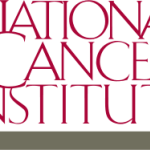- المجال: Government; Health care
- Number of terms: 6957
- Number of blossaries: 0
- Company Profile:
The National Cancer Institute (NCI) is part of the National Institutes of Health (NIH), which is one of 11 agencies that compose the Department of Health and Human Services (HHS). The NCI, established under the National Cancer Institute Act of 1937, is the Federal Government's principal agency for ...
A cancer vaccine consisting of autologous renal cell carcinoma (RCC) tumor cells modified with the hapten 2,4-dinitrophenol (DNP) with potential immunostimulating and antineoplastic activities. Administration of DNP-modified autologous renal cell carcinoma tumor cell vaccine may induce a cytotoxic T-lymphocyte (CTL) response against renal cell carcinoma tumor cells. DNP conjugation may enhance the immunogenicity of weakly immunogenic antigens.
Industry:Pharmaceutical
A cancer vaccine consisting of autologous dendritic cells (DCs) transduced with a recombinant adenovirus encoding p53 peptide, with potential immunomodulating activity. Intradermal vaccination with adenoviral-p53 transduced dendritic cell vaccine may stimulate the host immune system to mount a cytotoxic T lymphocyte (CTL) response against tumor cells expressing mutant p53, resulting in tumor cell lysis. P53, a tumor suppressor gene, is mutated in many tumor cells, resulting in the loss of apoptosis regulation and abnormal cell proliferation.
Industry:Pharmaceutical
A cancer vaccine consisting of autologous dendritic cells transfected with autologous tumor mRNA and the human CD40 ligand (CD40L) gene with immunostimulatory and antitumor activities. Vaccination with autologous dendritic cell-autologous tumor mRNA-human CD40L vaccine may elicit a cytotoxic T cell response against tumor cells from which the autologous tumor mRNA was derived. When expressed by dendritic cells, tumor antigens and the co-stimulatory molecule CD40L, which binds to CD40 receptors on antigen presenting cells (APC), facilitate both humoral and cellular immune responses against tumor cells.
Industry:Pharmaceutical
A cancer vaccine consisting of autologous dendritic cells loaded with separate preparations of acute myelogenous leukemia (AML) cell lysate and AML-specific messenger RNA (mRNA) with potential immunostimulatory and antineoplastic activities. Upon administration, AML mRNA plus lysate loaded autologous dendritic cell vaccine may elicit a potent cytotoxic T-cell (CTL) response against AML cells, resulting in tumor cell death. Autologous dendritic cells doubly-loaded with AML cell lysate and AML-specific mRNA may elicit superior primary, recall, and effector lytic immune responses compared to autologous dendritic cells loaded with tumor lysate or tumor mRNA alone.
Industry:Pharmaceutical
A cancer vaccine consisting of autologous dendritic cells (DCs) loaded with CD133-positive autologous brain tumor stem cells (BTSCs) –derived mRNA with potential immunostimulatory and antineoplastic activities. Upon intradermal administration, autologous CD133-positive BTSC mRNA-pulsed autologous dendritic cell vaccine may elicit a cytotoxic T-lymphocyte (CTL) response against the CD133-positive BTSCs from which the autologous tumor mRNA is derived. CD133, a tumor-associated antigen (TAA) and neural stem cell marker, has been found on a specific subset of glioblastoma multiforme (GBM) stem cells; its presence has been correlated with resistance to conventional chemotherapy and radiotherapy.
Industry:Pharmaceutical
A cancer vaccine consisting of a recombinant modified vaccinia Ankara (MVA) viral vector encoding the gene for the CD4 epitope-rich C-terminal domain of the Epstein Barr Virus (EBV) antigen EBNA1 and fused to the full-length of the EBV-associated antigen latent membrane protein 2 (LMP2), with potential immunostimulatory and antineoplastic activities. Upon administration, MVA EBNA1/LMP2 vaccine may elicit a cytotoxic T-cell immune response against cancer cells expressing EBNA1 and LMP2. Multi-antigen vaccine therapy may be more efficacious than single-antigen vaccine therapy. EBNA1, a sequence-specific DNA binding protein, plays an important role in EBV episomal genome maintenance and gene transactivation.
Industry:Pharmaceutical
A cancer vaccine consisting of an inactivated recombinant vaccinia virus encoding epitope peptides derived from melanoma-related HLA-A2-restricted tumor-associated antigens (TAAs), including Melan-A(27-35), gp100(280-288) and tyrosinase(1-9), and two co-stimulatory B7 proteins, B7. 1 (CD80) and B7. 2 (CD86). Upon administration, recombinant vaccinia-multiepitope melanoma peptides-B7. 1-B7. 2 vaccine may stimulate a cytotoxic T-lymphocyte response against melanoma cells that express TAAs which share epitopes with the epitope peptides expressed by the vaccine viral vector, resulting in tumor cell lysis; vaccine viral vector-expressed co-stimulatory proteins B7. 1 and B7. 2 may enhance the cytotoxic T-lymphocyte immune response to the TAAs.
Industry:Pharmaceutical
A cancer vaccine consisting of an immunogenic peptide derived from the cancer-testis antigen (NY-ESO-1), an antigen found in normal testis and various tumors. Vaccination with NY-ESO-1 peptide vaccine may stimulate the host immune system to mount a humoral and cytotoxic T lymphocyte (CTL) response to cells expressing NY-ESO-1 antigen, resulting in tumor cell lysis.
Industry:Pharmaceutical
A cancer vaccine consisting of ALVAC, a highly attenuated poxvirus strain derived from the canarypox virus, encoding for the tumor associated antigen (TAA) carcinoembryonic antigen (CEA), with potential antineoplastic activity. Upon administration, ALVAC-CEA vaccine expresses CEA and may stimulate a host immune response against tumor cells expressing CEA. This may result in the inhibition of tumor growth and/or metastasis. CEA is overexpressed in a variety of tumor cell types.
Industry:Pharmaceutical
A cancer vaccine consisting of allogeneic neuroblastoma tumor cells have been genetically modified to secrete the human cytokine interleukin-2 (IL-2) and the human chemokine lymphotactin (Lptn) with potential immunostimulating and antineoplastic activities. Upon administration, IL-2 and Lptn are secreted by the IL-2/Lptn gene-modified allogeneic neuroblastoma tumor cell vaccine, potentially enhancing the cytotoxic T lymphocyte (CTL) response elicited by vaccine neuroblastoma tumor-associated antigens (TAAs) against host neuroblastoma tumor cells. Produced by activated progenitor T cells, Lptn belongs to the C chemokine subfamily and is a potent chemotactic factor for lymphocytes; IL-2 stimulates natural killer (NK) cells and may enhance a vaccine-elicited CTL immune response against tumor cells.
Industry:Pharmaceutical
